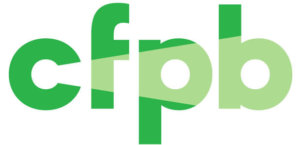CFPB & FDIC BoD on the Amended Deposit Insurance Fund Restoration Plan and Revised Deposit Insurance Assessment Rates
 One of the FDIC’s most important responsibilities is to prudently manage the Deposit Insurance Fund. The FDIC’s ability to credibly guarantee our nation’s insured deposits is vital for the stability of the banking system. The Deposit Insurance Fund has gone broke twice in the last 30 years.1 Just as large financial institutions should not expect a bailout from taxpayers, neither should the FDIC.
One of the FDIC’s most important responsibilities is to prudently manage the Deposit Insurance Fund. The FDIC’s ability to credibly guarantee our nation’s insured deposits is vital for the stability of the banking system. The Deposit Insurance Fund has gone broke twice in the last 30 years.1 Just as large financial institutions should not expect a bailout from taxpayers, neither should the FDIC.
The law requires the FDIC’s Board to establish and implement a restoration plan when the Deposit Insurance Fund’s reserve ratio falls below 1.35%.2 The plan must bring the reserve ratio back above the statutory floor within eight years. The fund’s reserve ratio breached the statutory floor on June 30, 2020. In the last six months, the situation has worsened, with the reserve ratio falling from 1.27% to 1.23%. The Deposit Insurance Fund is currently about $12 billion below the minimum prescribed by law. Given the serious risk of missing the statutory deadline, it is critical that the Board take steps now, while banking industry profits are robust. Otherwise, the Board may be forced to impose a larger rate hike later when economic conditions may be different.
I am voting in favor of shoring up the Deposit Insurance Fund by amending the restoration plan required by law and by proposing a small premium increase. These are important short-term actions.
Over the long term, I believe the Board should explore a new mechanism to automatically adjust premiums upward and downward based on economic conditions, rather than relying on ad-hoc actions. For example, calibrating assessment rates based on banking sector profitability, or a combination of metrics, is worth exploration. The Board should also evaluate the relative burden of assessments on banks of varying sizes, including whether the largest firms, especially global systemically important banks, should be paying a higher share of the assessments than they do today.
Regulators expect a bank board to actively monitor management’s execution of the bank’s objectives and require adjustments if warranted by changing conditions. That is sound governance. I am pleased we are demonstrating that we will hold ourselves to that same standard.
1. The Deposit Insurance Fund balance went negative in the early 1990s after the Savings and Loan Crisis and 1990-91 economic recession. The balance again went negative due to the 2008 financial crisis.
2. 12 U.S.C. 1817(b)(3)(B) and (E).
.